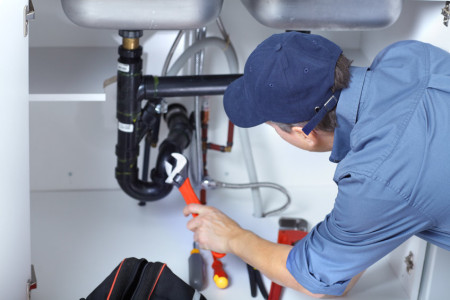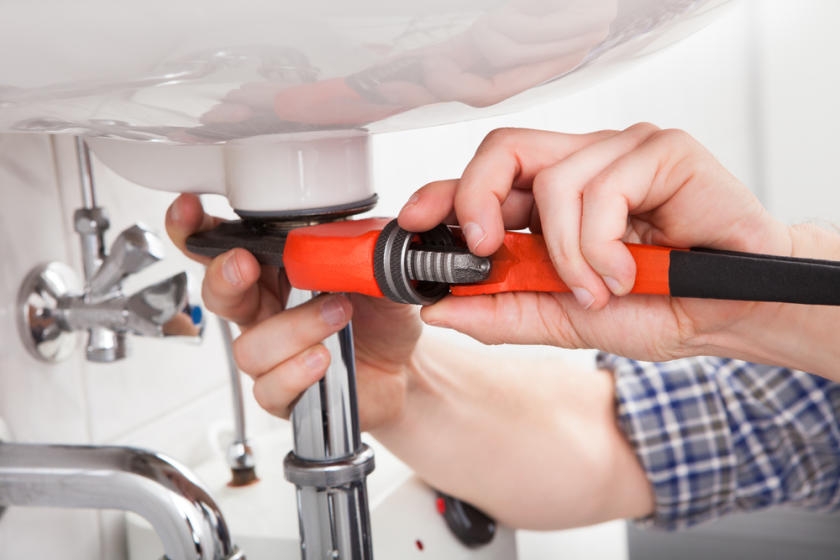Quick Plumbing Advice for Urgent Issues Until Support Arrives
Quick Plumbing Advice for Urgent Issues Until Support Arrives
Blog Article
In this article down the page you will discover a good deal of really good help and advice with regards to What to Do During a Plumbing Emergency.

Plumbing emergencies can strike at any moment, causing stress and possible damages to your home. Whether it's a burst pipe, a clogged drainpipe, or a dripping faucet, knowing just how to handle the situation until a professional plumbing shows up can conserve you from additional complications. This article gives necessary emergency situation pipes suggestions to help you alleviate damage and restore control during a pipes dilemma.
Shut off the Supply Of Water
The first step in any kind of pipes emergency is to shut off the water. For local concerns, such as a dripping tap or bathroom, shut off the valve near the fixture. When it comes to a significant leakage or burst pipe, locate your home's main water shut-off shutoff and transform it off promptly. Knowing the location of these shutoffs ahead of time can save valuable time throughout an emergency situation.
Address Little Leakages with Temporary Fixes
Small leaks can quickly come to be significant issues if left unchecked. Utilize these temporary fixes up until expert assistance gets here:
While these solutions aren't permanent, they can assist lessen water loss and damages.
Unclog Drains Pipes Securely
A clogged drain can be a discouraging and unpleasant concern. Below's just how to tackle it:
If these methods don't work, prevent utilizing too much pressure, as it might worsen the blockage.
Manage Overflowing Toilets
An overflowing bathroom can trigger instant turmoil. Here's what you ought to do:
Shut Off Your Water Heater
In certain emergencies, such as a ruptured pipeline, it's important to shut down your hot water heater. This stops overheating or damages to the device when water quits streaming. Shut off the power supply to the water heater (electrical or gas) and allow it cool off to prevent potential hazards.
Momentarily Quit a Burst Pipe
A ruptured pipeline can cause significant water damage in mins. To alleviate the problem:
Call a specialist plumber promptly to deal with the trouble permanently.
Manage Frozen Pipes Very Carefully
In cooler climates, icy pipes are a typical emergency situation. If you think an icy pipe:
Prevent Additional Damage
Taking quick activity to reduce damages can save you money and time in the future. Here's just how:
. Have an Emergency Pipes Package
Prepare a basic plumbing emergency situation package to deal with small concerns effectively. Your set must consist of:
Having these devices accessible can make a significant difference in your capability to take care of emergency situations.
Know When to Call a Professional.
While quick fixes can help momentarily, certain plumbing problems need instant specialist focus. Call a plumbing if:.
Promptly contacting a professional ensures the issue is dealt with correctly and prevents further complications.
Conclusion.
Plumbing emergencies can be frustrating, yet with the appropriate expertise and devices, you can handle the circumstance efficiently up until help arrives. By turning off the water, resolving little leaks, and using temporary solutions, you can decrease damages and keep your home safe. Remember, these pointers are short-lived options; always speak with a qualified plumbing technician to deal with the root cause of the trouble. Prep work and quick reasoning are your ideal allies in any type of plumbing emergency situation.
8 Helpful Tips for Managing Plumbing Emergencies at Home
If your plumbing system hasn’t failed once, wait for it because almost everyone has a story to tell. Sometimes, it could be simple emergencies such as a leaking pipe, a blocked cistern, or even a big burst pipe. In situations like this, you need to have some handy tips to save you some money and from possible damages.
Take care of minor issues early.
Sometimes, you could have avoided an emergency by taking proactive measures while it was still early. Some major plumbing emergencies can be a result of an ignored minor issue. We recommend that you have items like plumbing tapes and other related items. A plumbing tape can allow you to manage minor leaks before the plumber arrives.
Cut off the water supply.
This tip is essential in almost any type of leakage problem. For problems like minor leakages in the toilet or kitchen, turn off the supply that takes water to the affected pipes. If the leakage is a major pipe, you must shut off the supply valve to the entire building. This will help you avoid flooding your home and neighbors if you share a flat.
Know your plumbing system
Folks typically move into a new apartment without understanding the water supply around the building. This can prove disastrous if a water emergency arises and the plumber is far away. The previous tip will prove useless if you don’t practice this one. More importantly, know where your water shut-off valve is located – you’ll need that knowledge to prevent potential home floods.
Have some common handy tools
There are lots of plumbing emergencies that you can handle without hiring a plumber. That’s why you must keep some tools available always. Some tools that you can use to fix simple plumbing emergencies easily include plumbing tapes, screwdrivers, thread seal tapes, plungers, pliers, tape measures, and rubber gloves.
Insulate your pipes from cold
You’ll save yourself from many plumbing expenses if you protect your water pipes from the cold. This is because of the harmful effects that cold weather can have on your pipes. During winter, your pipes can burst from being overly expected to freezing temperatures. So, make sure insulators are there to keep the pipes working correctly.
Avoid practices that will clog your toilet.
Many people indulge in practices that can damage the plumbing system of the entire building. One of these is when they use their toilet to dispose-off garbage. They flush all kinds of things, such as paper towels, bandages, hairs, female sanitary products, etc., down the toilet. This will block your toilet in the long run, incurring unnecessary expenditures. Dump such waste in the trash instead.
Check your dials regularly.
Sometimes, there could be leakages in your home without noticing them in time. So, constantly monitor your water meter dial. If the dial is reading when there is nobody using water, this is an indicator that there is leaking. Check for leaks immediately. Call a plumber as soon as possible if you can’t find any.
https://www.constructionplacements.com/8-helpful-tips-for-managing-plumbing-emergencies-at-home/

Do you really like reading about ? Give a remark further down. We'd be pleased to see your insights about this page. In hopes to see you back again in the near future. Sharing is nice. You just don't know, you could be doing someone a favor. We love your readership.
Call Report this page